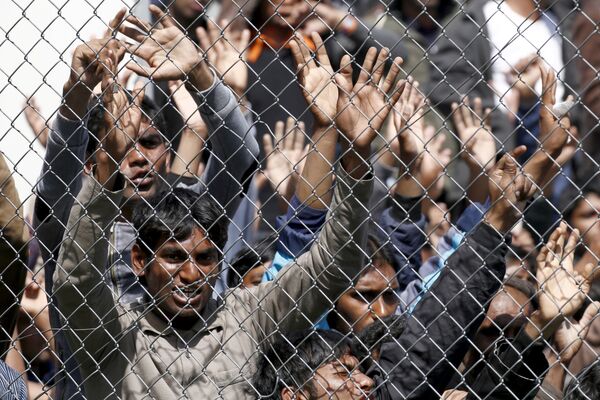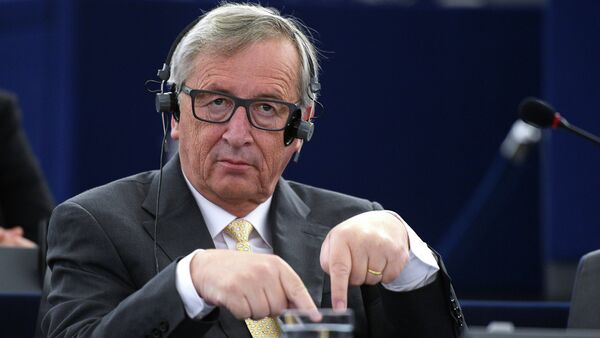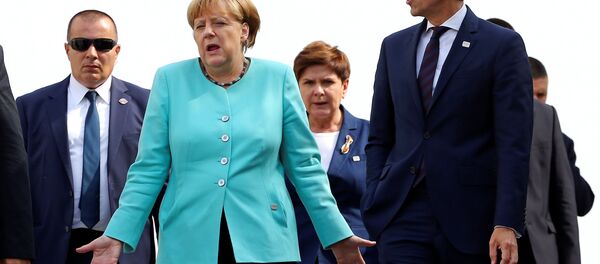Hungary is due to hold a referendum in October on the controversial Juncker-backed schemes to relocate refugees around Europe, according to a mandatory quota system, which is deeply unpopular — particularly in Eastern Europe.
The referendum questions is: "Do you want to allow the European Union to mandate the resettlement of non-Hungarian citizens to Hungary, without the approval of the National Assembly?" The result is expected to be a resounding "no." Hungary has already referred the matter to the European Court of Justice.
Hungarian government spokesman Zoltan Kovacs told reporters in Brussels that the referendum "is going to have political and legal consequences. The message is going to be unavoidable not only for the Hungarian government and the Hungarian parliament, but for the European institutions and everyone in Brussels.
"It is deciding, or it is signing in what perspective, in what manner the Hungarian government should approach the future of Europe, the future of European institutions, the future of decision-making, protocols that have been set in the past couple of years in the heart of Europe.
"These issues should be re-addressed and talked about in an open manner and it's completely unacceptable that the policies we have seen for the last couple of years, the stealth mode of decision-making, law-making and regulation is going to continue," he said.
Juncker Plans
Juncker's original plan was to relocate 160,000 refugees from Greece and Italy — which had borne the brunt of the massive increase in migrant flows in 2015 — to EU member states by mandatory quotas, based on population and GDP, among other things. So for only 5,000 have actually been relocated, because of opposition to the plan.
298,474 migrants incl refugees arrived by sea to Europe
— IOM (@IOM_news) September 20, 2016
3,213 dead/missing https://t.co/Dc8umyVaTU #MigrationEurope pic.twitter.com/aO4JZymnhY
His second grand plan was to negotiate the controversial EU-Turkey migrant deal, under which "irregular migrants" — those refused asylum — would be returned from Greece to Turkey, in return — on a one-for-one basis — for Syrian refugees being relocated to member states.

That plan is facing growing opposition over Turkish President Recep Tayyip Erdogan's clampdown on the opposition, the media and his human rights record.
There has been growing pressure on Juncker to resign ever since the Brexit referendum, which many felt was a sign that he was out of touch. Czech Foreign Minister Lubomir Zaoralek said, following the Brexit referendum in June:
"Right now I can't see the European Commission [president] as the right man for the job. Someone in the EU maybe should contemplate quitting."



